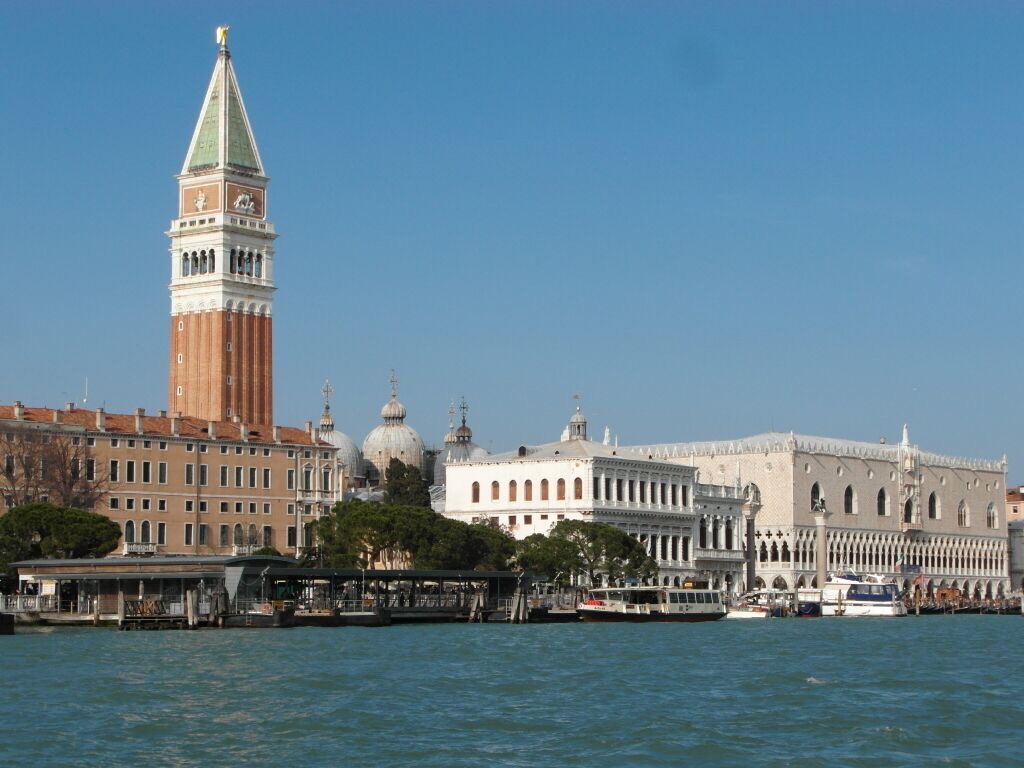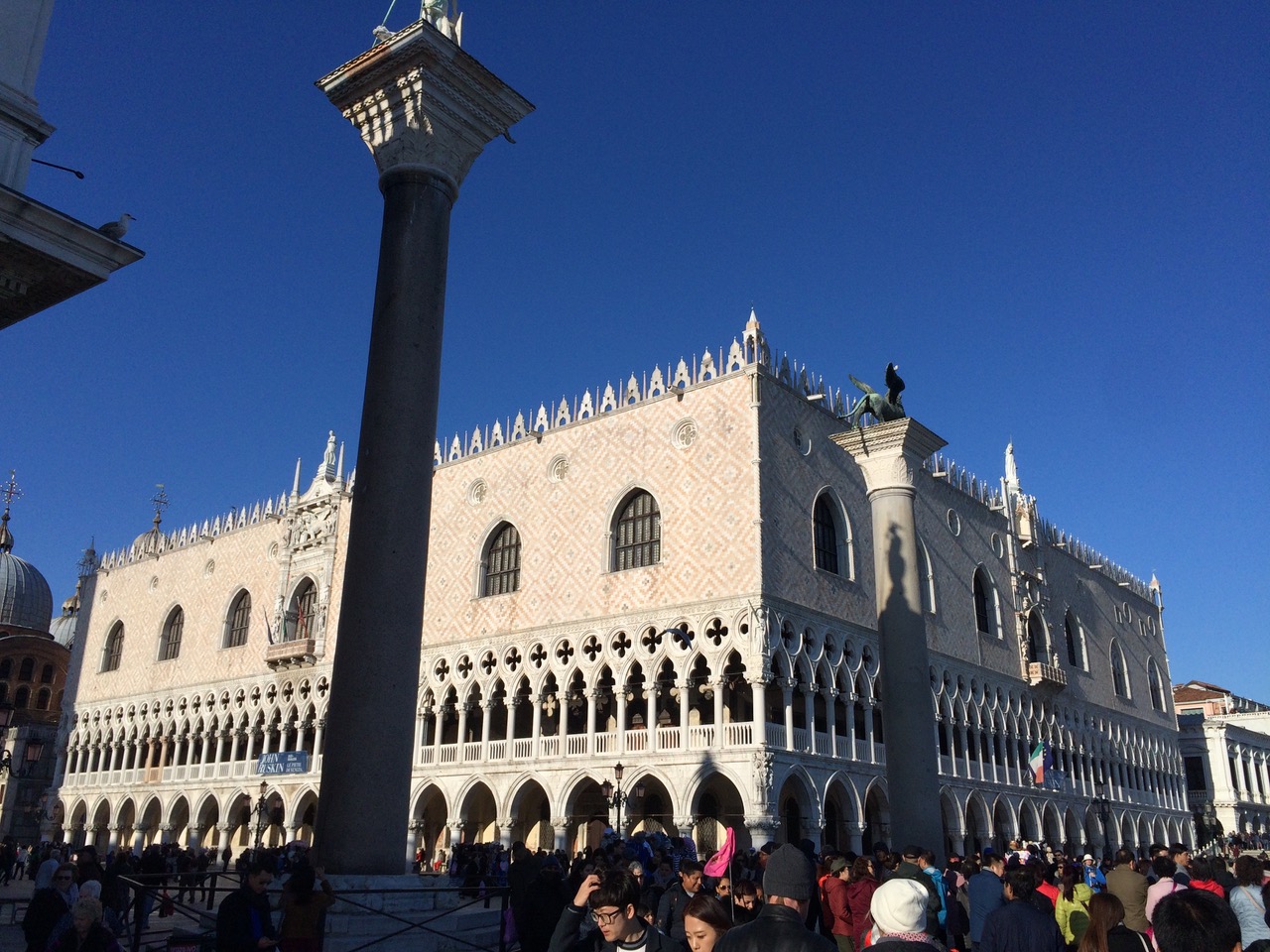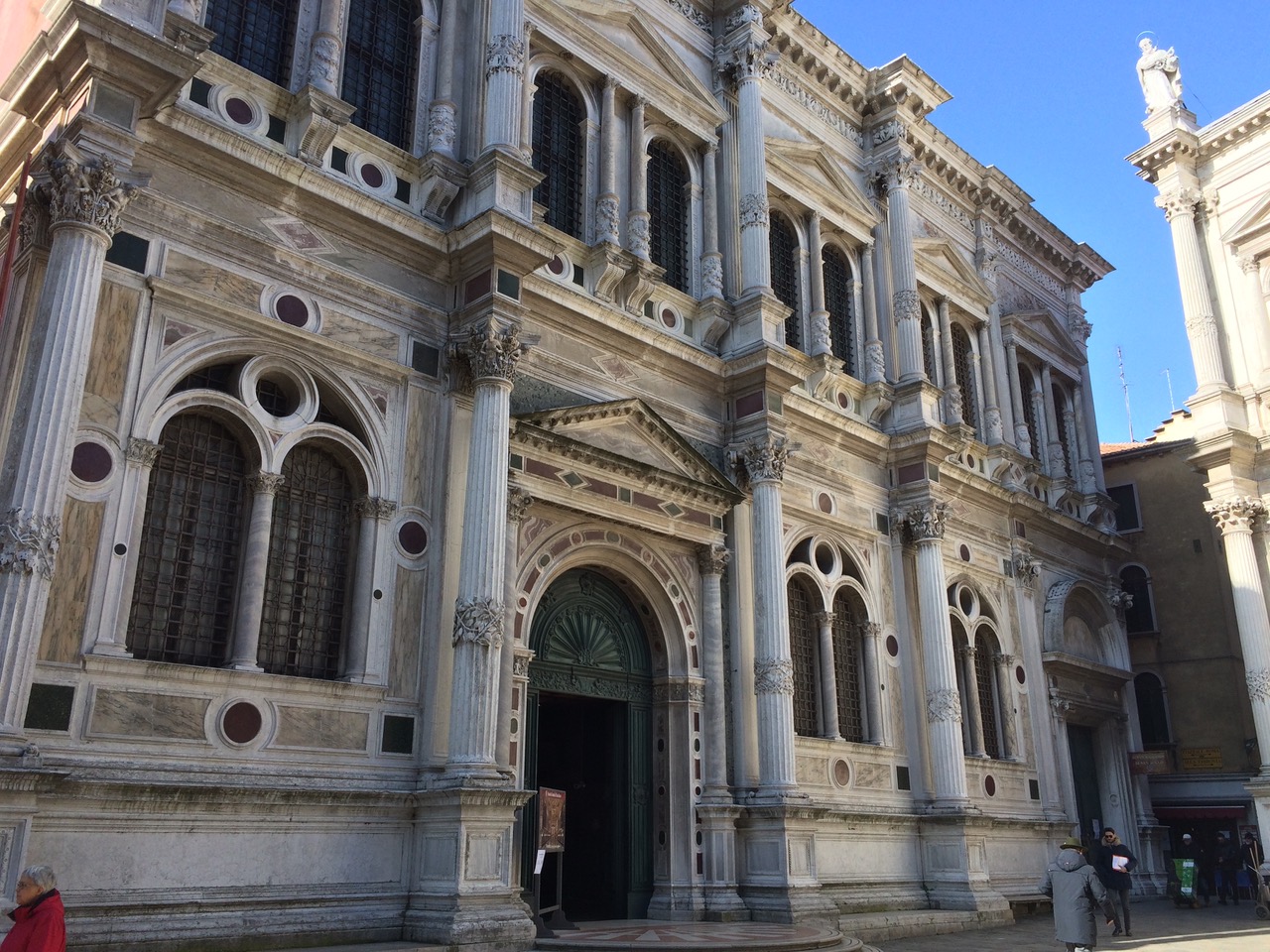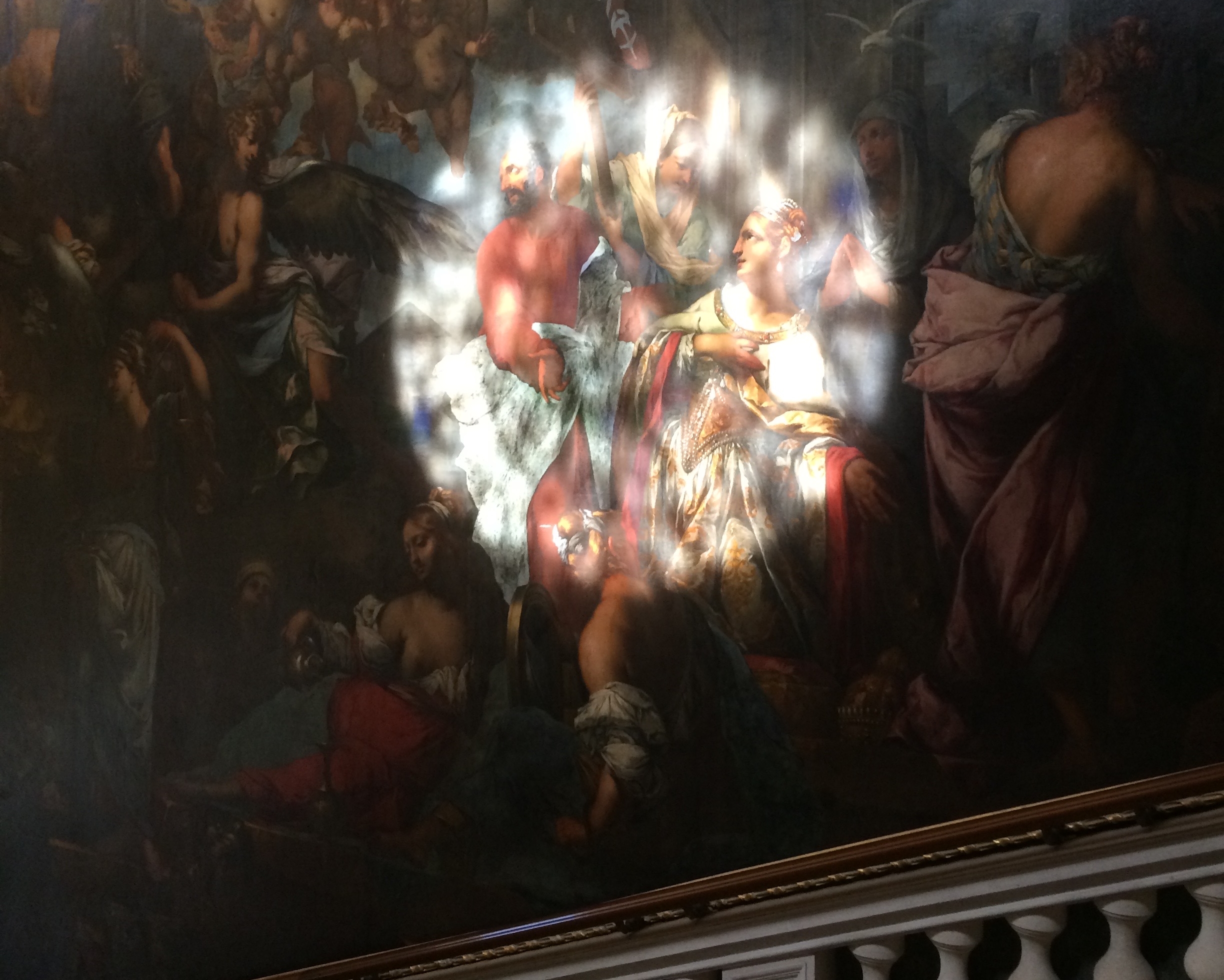VENICE '...the paradise of cities...'
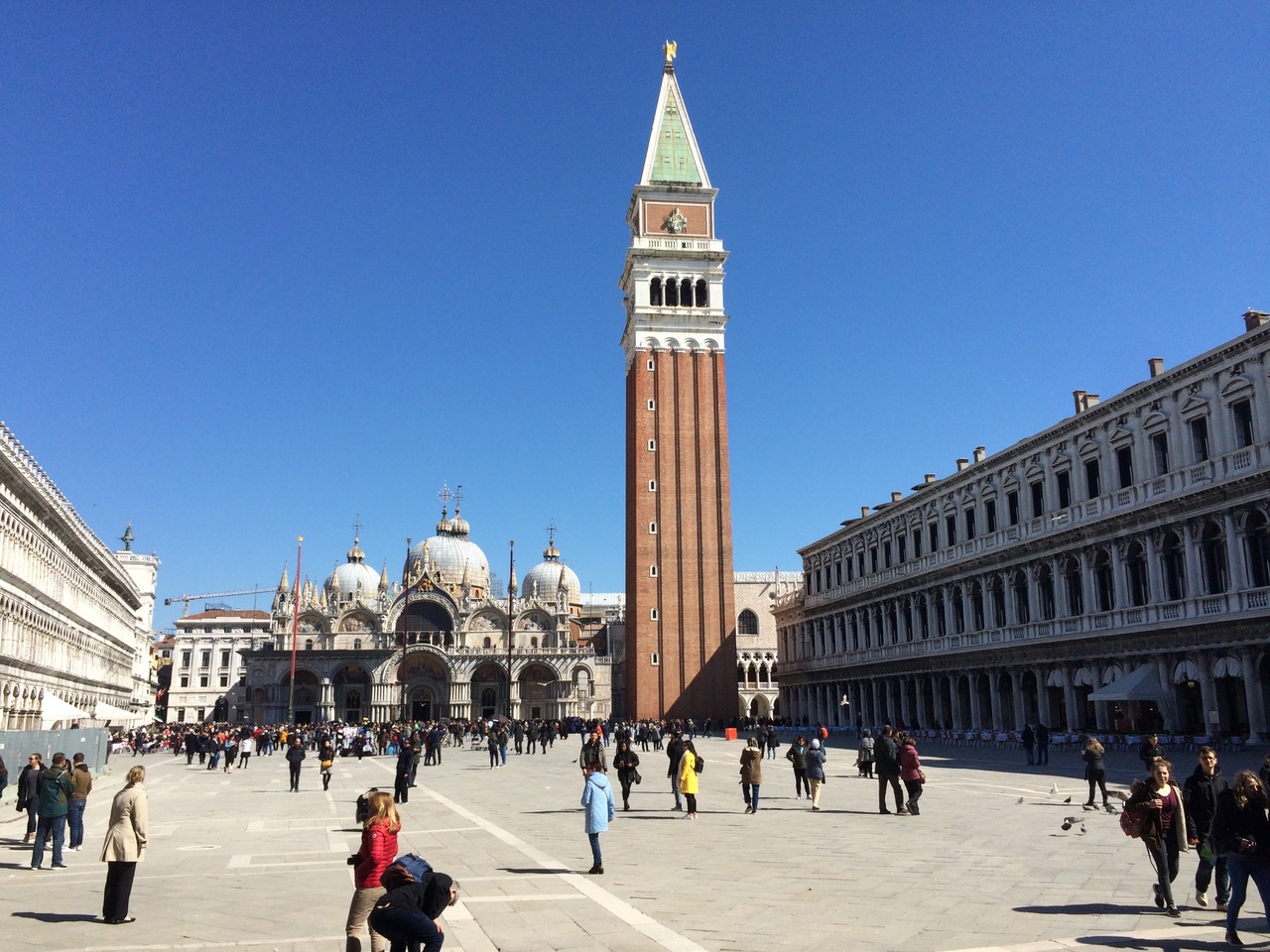
Venice was a place of supreme importance to Ruskin through most of his life. Today, the Guild continues to nourish links with people, organisations and places in the city that are committed to preserving Venice as a vibrant living city and lagoon, and continuing the study and appreciation of Ruskin and his impact on the history of Venice through his writing and patronage.
FoRS (Focus on Ruskin Studies) at Ca' Foscari University of Venice
We are honoured and delighted to be partners of FoRS, the research centre of the Department of Linguistics and Comparative Cultural Studies of Ca' Foscari University of Venice. It was officially founded in June 2022, and aims to build on the tradition of Ruskin research that the University has sustained over more than twenty years. It has promoted conferences, exhibitions and publications of international standing on topics related to Venice, Italy and beyond. The FoRS Advisory Board reflects the breadth of Ruskin’s own interests, comprising scholars working in many fields of study, from European and North American literatures, to translation studies, to aesthetics, the history of art and architecture, the history of restoration and conservation, archaeology. FoRS will provide a space for the exchange of ideas and data, for cooperation and dissemination of work on themes of common interest both within Ca’ Foscari and with the international network of cultural, educational and scholarly institutions whose interests relate to Ruskin’s many-faceted oeuvre.
VOICES FROM VENICE - FOUR READINGS
Videos of four events inspired by Ruskin's writings about Venice, recorded Winter 2021/Spring 2022
These four monthly readings from Ruskin’s writings about Venice were offered online between December 2021 and March 2022, rooted in the knowledge and passion of a group of Companions concerned about the diverse challenges facing Venice which all arguably arise from confusing ‘illth’ with ‘wealth’.
Venice is wealthy in so many ways – the diversity of its inhabitants, its architectural and artistic treasures, its gardens and its food culture, its location in the precious ecosystem of the lagoon, its strong craft traditions – yet many pressures combine to make the lives of the resident community difficult to sustain and moreover put the cultural and social heritage of Venice at risk.
A new kind of thoughtful tourism (such as Ruskin himself practised) is needed – gentle, slow and sustainable. A new kind of economic system is also needed, one that respects the fact that Venice is a living community rather than a stage set for visitors; and one that resets the damaging over-exploitation of the earth’s resources and provides for a more sustainable future for the city and the Venetian Lagoon.
APPROACHING ST MARK'S
Reading: The Stones of Venice II, § 12-14 (LE 10: 80-83)
We can think of Ruskin as a tour guide. His purpose in this passage from The Stones of Venice is to lead the visitor to St Mark’s Basilica at the spiritual heart of the city. But the way there is part of the vision and what we see is not just a building but the world as it was in the beginning.
Second reading: Ruskin’s ‘A Letter to Count Zorzi’, § 3-6, 9 (LE 24: 406-408, 410-411) published as the preface to Zorzi’s book Osservazioni interno ai ristauri interni ed esterni della Basilica di San Marco, 1877.
CLIVE WILMER, poet and writer, Emeritus Fellow of Sidney Sussex College, Cambridge, former Master of the Guild of St George.
Introduced by PETER BURMAN, architectural historian and historic buildings specialist, Guild Director for International Relationships and Craftspeople & Craftsmanship. Peter will also be the second reader.
PLEASE NOTE: there were some minor technical glitches with the recording on this occasion, with audience members unmuting and brief snatches of their conversation heard, and occasional losses of sound. We apologise for this inconvenience.
THE TWO BOYHOODS
Reading: Modern Painters V, § 1-9 and 19 (LE 7: 374-380 and 388)
Ruskin’s chapter contrasts the ‘ideal’ boyhood of Giorgione in Venice with the ‘real’ boyhood of Turner in London. This talk will move from the ‘religion’ of Turner’s city to that of the speaker’s city in modern India. It will pose the question as to what we really want as far as climate change and sustainability go and why exactly we want them.
ARJUN JAIN, Companion and Young Companions' Representative on the Guild Board
Second reader: GINEVRA LO SCIUTO Introduced by Guild Director Mark Cleaver
ST GEORGE AND THE DRAGON
Reading: ‘The Shrine of the Slaves’, Ch 10 of St Mark’s Rest, beginning at § 159 (LE, 24: 335).
‘Supreme, serene, unassuming, unfaltering sweetness’: what Ruskin has to say about Carpaccio’s paintings of St George in the Scuola di San Giorgio degli Schiavoni. This very Venetian institution, also known as the Scuola Dalmata, is still active, with several hundred Venetian confratelli and consorelle, many of whom proudly give their time to work there.
MICHELLE LOVRIĆ, novelist, writer, campaigner, Companion of the Guild
JOSEPH MYDELL, actor, who read excerpts from Ruskin’s observations on the art of the scuola, interspersed with brief context from Fors Clavigera.
Introduced by Guild Director Mark Frost
'WHY HAVEN'T YOU A DUCAL PALACE OF YOUR OWN IN SHEFFIELD?'
Reading: Passages from Letter 78 (June 1877) of Fors Clavigera, § 4-12 (LE 29:126-36)
This talk presented Fors Clavigera as a work, and then concentrated on the way Ruskin refers to Venice in his letters to the labourers of Great Britain. The reading and comment dealt with Ruskin's idea of work, starting from the provocative question he asks in the opening: "Why haven't you a Ducal Palace of your own in Sheffield?", and considering the examples he provides by contrasting old and modern Venice values.
DR EMMA SDEGNO, Companion of the Guild of St George, Consorella of the Scuola Grande di San Rocco, Professor of English at Ca’ Foscari University, Venice Second reader:
SARAH QUILL; Sarah has worked between Venice and London for many years to create a photographic archive of Venetian architecture, sculpture and daily life. Her book, Ruskin’s Venice: The Stones Revisited was recently republished in a new edition, which has been translated into Italian. She lectures regularly, principally on Venetian subjects, and is a trustee of the Venice in Peril Fund, the British committee for the preservation of Venice.
Introduced by Master of the Guild Rachel Dickinson.
VOICES FROM VENICE CONFERENCE 2022
Peter Burman, Conference Chair and Guild Director responsible for International Relationships, believes that (to quote William Morris) Salvatore Settis’s book If Venice Dies is ‘one of the very few necessary and inevitable utterances’ of our time: ‘The future of the historical city is a vast topic being played out not just in Venice or Italy, but in the rest of the world too, and Venice … can be taken as its supreme symbol. With each passing day it becomes increasingly urgent to ask oneself how every city can mould its symbolic capital with its citizens’ civic capital to put this to fruitful use. If this should happen in Venice, it could happen anywhere else.’ One of the enemies of such progress is the degree of public corruption everywhere. Salvatore Settis observes: ‘All over the world, and not just in Venice, historic cities are being emptied out while their institutions give priority to tourist monocultures and hikes in real estate prices, unleashing a form of ethnic cleansing that is banishing the young and the poor from their cities.’
Peter Burman also acknowledges the vision and work being carried out by the numerous independent organisations in Venice which include Gioventù del III Millennio (who distributed food to the vulnerable during the pandemic); La Venessiana (slow travel, gardens and food); No Grandi Navi (campaigning against the cruise-liners); Ocio (concerned about the public housing stock); Save Venice Inc (the leading American not-for-profit organisation dedicated to preserving the artistic heritage of Venice); Venice Calls (dedicated to the removal of plastic waste from the waters and shorelines of the lagoon); We Are Here Venice (which addresses Venice’s challenges as a living city and advocates for evidence-based approaches to policy making). The Winter 2021 Newsletter of Venice in Peril puts the dangers to Venice very succinctly: ‘Threatened by depopulation, rising sea-levels and the strangling effect of mass tourism, Venice faces daunting problems that endanger the very identity of the city as a social community.’ (Dr Deborah Howard)
We were thrilled beyond measure therefore that Salvatore Settis addressed the conference. Other speakers included: Francesco Bandarin; Jan van der Borg; Tommaso Cacciari, (Convenor,, No Grandi Navi); Emanuele Confortin; Maria Laura Picchio Forlati; Graziella Giusto; Kathleen Ann Gonzalez (editor of Venice Rising); Deirdre Kelly; Jane Da Mosto (Director, We Are Here Venice); Luisella Romeo; Rosella Mamoli Zorzi.
READ THE FULL CONFERENCE PROGRAMME HERE
READ SPEAKER BIOGRAPHIES HERE
LEARNING TO SEE IN VENICE
The week before John Ruskin's 200th birthday, a group of Guild Companions, colleagues and friends spent the weekend of 2nd and 3rd February 2019 in Venice, to participate in the city's celebrations of this landmark occasion. Companion Malaika Cunningham, from Sheffield, was awarded a bursary by the Guild to attend the weekend, and you can read her report of her visit HERE.
CELEBRATING RUSKIN'S BIRTHDAY IN VENICE
Venice celebrated her adopted son in his bicentenary year. Master of the Guild Clive Wilmer reflected on the occasion. Read his thoughts HERE.
A RUSKIN CELEBRATION AT CA' FOSCARI
On Ruskin's 200th birthday, 8 February 2019, Companion Emma Sdegno co-organised a book launch and round table at Ca' Foscari in Venice. Companion Jeanne Clegg attended the day and wrote a beautiful account of the occasion. Read it HERE.
